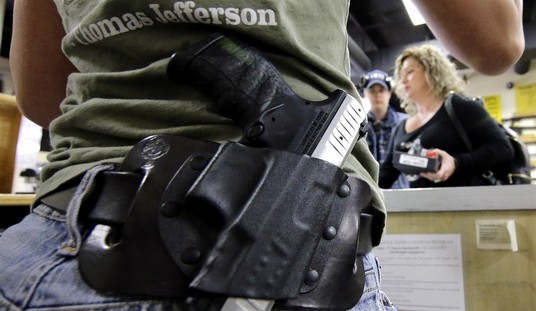A highly anticipated decision by the Illinois Supreme Court was released on Thursday, but the state’s high court managed to avoid addressing the focus of the case, which dealt with whether or not the state’s Firearms Owner ID card law is constitutional.
Vivian Brown is a resident of Illinois, and back in 2017 she was arrested for having a rifle in her home, but no valid FOID card. Brown was legally eligible to get a card, she just hadn’t done so. In 2018 a circuit judge agreed with White’s attorneys that the FOID card statute was unconstitutional, and the state of Illinois appealed his decision to the state Supreme Court
On Thursday, the state Supreme Court sent the case back to the circuit court with instructions to decide the case without reaching a conclusion on the constitutionality of the FOID statute itself. The majority opinion argues that when courts can reach a decision without implicating the constitutionality of a law, it’s bound to do so.
The common-law doctrine that holds that courts should not compromise the stability of the legal system by declaring legislation unconstitutional when it is not required is “ ‘[o]ne of the most firmly established’ ” in constitutional law and one that this court has applied with diligence.
Indeed, the doctrine is of such importance that this court has taken the “somewhat extraordinary step” of incorporating it into our Supreme Court Rules to ensure its enforcement. Illinois Supreme Court Rule 18(c)(4) (eff. Sept. 1, 2006) requires courts to state in writing that a case cannot be resolved on an alternative ground before finding a statute unconstitutional. We have also incorporated Trent and Hearne’s holdings that an order of the circuit court that unnecessarily finds a statute unconstitutional may be vacated by this court at any time, whether before or after briefing and oral argument…
The circuit court’s language was clear and unequivocal. The court held that the FOID Card Act did not apply to the act of possessing a firearm in the home as a matter of statutory interpretation and, therefore, could not apply to defendant. This was an alternative, nonconstitutional basis for dismissing defendant’s information.
According to the majority opinion, the circuit court could have determined that the language of the FOID card statute that requires individuals to be in possession of a FOID card if they “possess” a firearm, stun gun, or Taser simply didn’t apply to individuals in their home, because it wouldn’t be reasonable to expect that a person would have their FOID card on them at all times inside their house.
It’s an odd argument, and in a blistering dissent, Justice Lloyd A. Karmeier accused his colleagues of simply avoiding the thorny issue of the legality of the FOID card at the expense of the defendant.
The majority’s decision resolves this appeal based on an issue no one has raised, decides the issue through misapplication of principles we have no reason to discuss, and remands the case to the circuit court for entry of an order that is clearly meritless and serves no purpose. Neither the parties nor the interests of justice will be served by this unexpected and pointless exercise. I therefore respectfully dissent…
Constitutional concerns—not statutory ones—lay at the center of the circuit court’s reasoning. But for the circuit court’s view that the statute could not pass muster under the second amendment as applied, the circuit court would not have dismissed the charges against defendant. Accordingly, I do not believe we can fairly assert that the circuit court’s decision compromised the substantive principles underlying Rule 18 and should preclude us from proceeding to the merits of the appeal.
Karmeier goes on to write that sending the case back to the circuit court in order to be dismissed on statutory and not constitutional grounds is a “meaningless and wasteful act.”
As I have noted, no plausible claim can be made that the conduct with which defendant is charged falls outside the plain language of section 2(a)(1) of the FOID Card Act. To order the circuit court to enter such an order would be tantamount to compelling it to make a legal determination that none of the parties requested, that the court itself never meant to make, and that would have no chance of being affirmed on appeal. And when the forced order is ultimately reversed by the appellate court, as the law would require, what will happen? The circuit court will simply enter another order declaring the statute invalid, putting the parties and the litigation in precisely the same position they are now. Nothing will have been gained. Time will have been lost. Judicial resources will have been wasted. Defendant will remain in legal limbo.
In other words, expect this case to be back before the state Supreme Court, but likely not for many months. The state Supreme Court may have delayed having to make an actual decision on the constitutionality of Illinois’ FOID card statute, but it won’t be able to avoid the issue forever.









